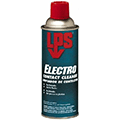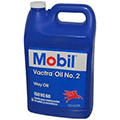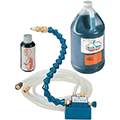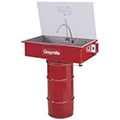Lubricants, Coolants & Fluids
Shop for Lubricants, Coolants, & Fluids
Businesses and factory managers must stay up to date on the best industrial oils, coolants, and fluids for their operations. The wrong coolant can cause machines to overheat and break down, while the wrong lubricant can cause corrosion and damage systems.
By understanding the different types of lubricant oils and their benefits, you can ensure you are using the best products for your operations. Fortunately, at Penn Tool Co., we offer an expansive catalog of the best commercial lubricants on the market.
Here, we’ve curated a collection of industrial oils from the most trusted brands in the industry. Find the best industrial oils and machine lubricants for your operations, below.
What are Industrial Oils & Lubricants?
Oils and lubricants are essential components in industrial and commercial operations, providing a number of important benefits. These fluids help reduce wear on machinery parts by decreasing friction between two surfaces.
There are several additional benefits, including:
- Protecting metal surfaces against corrosion and rust
- Aiding in greater efficiency through improved energy transfer between moving parts
- Reducing damage caused by vibration or shock
- Dissipating heat to prevent overheating
- Extending the lifespan of machinery parts
- Improving overall performance.
Why are Industrial Coolants Important?
Industrial coolants serve an important role in protecting vital machinery components from excessive wear caused by extreme temperatures created during high-speed operation. They also act as a conductor for thermal energy to be more evenly distributed throughout the machine, allowing it to run more efficiently. Additionally, coolants can help minimize corrosion and contamination of metal surfaces by blocking off oxygen supply to rust-causing particles.
What are the 5 Types of Machine Lubricants?
There are five primary types of lubricants used in industrial machinery:
Grease
Grease is made up of thickened oil mixed with solids such as calcium carbonate or silica for added protection against wear and tear. Grease is used to form a bond between two moving parts, providing protection from wear and corrosion.
Mineral & Synthetic Oils
Mineral oils are composed of hydrocarbons from natural sources, like crude oil or petroleum, and provide excellent lubrication for high-speed operations. Synthetic oils are human-made and often contain additives that provide additional benefits such as reduced friction or improved thermal stability.
Dry Lubricants
Dry lubricants are typically solid materials that can be applied in either liquid or paste forms; common examples include graphite and molybdenum disulfide (moly). These materials create an extremely thin protective layer between moving parts and reduce friction while also limiting the build-up of dust or other contaminants.
Penetrating Lubricants
Finally, Penetrating Lubricants are used to loosen stuck parts and provide lubrication. Common examples include WD-40 and Liquid Wrench. These penetrating oils are designed to penetrate deep into tight spaces, providing lubrication where it is most needed.
Find the Best Lubrication Equipment & Supplies at Penn Tool Co.
In conclusion, industrial oils, coolants, fluids, and machine lubricants are essential products for a diverse range of operations. They aid in reducing friction, heat and wear while protecting metal surfaces from corrosion.
There are five primary types of lubricants used in industrial machinery: grease, mineral oils, synthetic oils, dry lubricants, and penetrating lubricants. With the right product selection, and proper maintenance protocols in place, these products help increase efficiency and extend the lifespan of your machines.
To find the industrial cleaners and lubricants for your operations, reach out to our team today.





